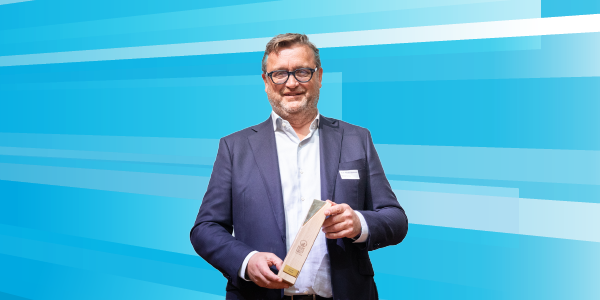Jean-Marc Vandoorne | Biobest
At the end of last year the specialist in biological crop protection, Biobest, acquired its Brazilian counterpart, Biotrop. This acquisition is part of the M&A strategy of the Kempen-based company, with the ultimate goal of being among the top 10 global AgTech companies by 2034. The rapid growth of the company can be attributed, among other factors, to its long-standing collaboration with private equity players.
At the end of last year the specialist in biological crop protection, Biobest, acquired its Brazilian counterpart, Biotrop. This acquisition is part of the M&A strategy of the Kempen-based company, with the ultimate goal of being among the top 10 global AgTech companies by 2034. The rapid growth of the company can be attributed, among other factors, to its long-standing collaboration with private equity players.
In recent years, Biobest has already achieved an impressive series of acquisitions. In terms of scale the most recent one, the acquisition of the Brazilian Biotrop in 2023, stands out. How important is this transaction?
Jean-Marc Vandoorne: “Biotrop is a global player in organic agricultural solutions. Last year, the company achieved a turnover of around 115 million euros, representing an increase of more than 65 percent compared to the previous year. Thanks to this transaction, Biobest not only gained a leading position in South America, but also expanded its range of organic solutions. This acquisition is therefore nothing less than a historic milestone for our company.”
How did the procedure go and how was the deal financed?
Jean-Marc Vandoorne: “The first contacts with the Brazilians date back to the end of May 2023. Less than three months later – on August 17th – we made a binding offer. The speed of the process was due to the fact that we had just completed a capital increase at the end of March. We raised 98.5 million euros from Sofina and several private investors. During that operation, we had also established contacts with other interested investors. When the opportunity with Biotrop arose, we were prepared. We knew who to call. The acquisition was based on a company value of 532 million euros, of which we paid 85 percent immediately. The financing was mainly through a capital increase amounting to 365.7 million euros. In addition, we also entered into some long-term loans.”
Recently, valuations in acquisitions have dropped significantly. Was this a sensitive issue in the negotiations?
Jean-Marc Vandoorne: “There is always some tension in such negotiations. Existing shareholders prefer as high a valuation as possible, while the buying parties want to pay as little as possible. The sector in which we operate is doing extremely well. At the group level, we can achieve annual growth of at least 15 percent, and that potential automatically translates into attractive multiples. For some parties, the price was too high, but others decided to come on board.”
Which parties have come on board at Biobest? What are the power dynamics?
Jean-Marc Vandoorne: “Even after the capital increase, Floridienne remains the reference shareholder, but its participation has decreased to 59 percent. In addition, four new parties have come on board. M&G is a leading international asset manager. For Biobest, this is an asset because the presence of such a player adds credibility for future transactions. The second party is Tikehau Capital, which is entering through its private equity fund focusing on regenerative agriculture. Finally, there are also Unigrains and Sofiprotéol, two smaller French sector funds specializing in agriculture.”
“Private equity is a fully-fledged asset class that has played a significant role in the development of Biobest”
“Private equity is a fully-fledged asset class that has played a significant role in the development of Biobest”
Ultimately, you chose private equity. Were there other options on the table? A listing on the stock market?
Jean-Marc Vandoorne: “As a good family man, you should always consider all options. However, it was not the right time for an IPO. That doesn’t mean it will never happen. For now, we are very satisfied with the current structure, which includes six different private equity players – Mérieux is still on board after six years. The ownership structure strikes a good balance between parties with shorter and longer investment horizons.”
Last year, the Belgian Venture Capital & Private Equity Association (BVA) named Biobest ‘Growth Company of the Year’. How important is this award for the company?
Jean-Marc Vandoorne: “Biobest has many years of experience with private equity. It is a fully-fledged asset class that has played a significant role in the development of Biobest. We don’t boast about it commercially, but it is a fact that such a trophy always adds value to credibility.”
What does Biobest do?
In the late 1980s, veterinarian Roland De Jonghe experimented with breeding bumblebees. He used them, among other things, to pollinate tomatoes, which marked the beginning of Biobest. Later, the activities expanded, and the company grew into a global player in the biological control of pests and diseases. As of 2024, Biobest operates in more than 70 countries. After the acquisition of the Brazilian Biotrop, the company employs over 2750 people worldwide.
In 2006, De Jonghe sold his company to a consortium, including the publicly listed Floridienne. Today, Floridienne is still the majority shareholder, although with the most recent capital increase, its stake has diluted to 59 percent.”
